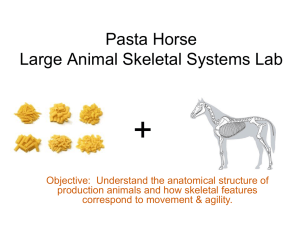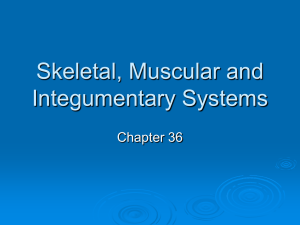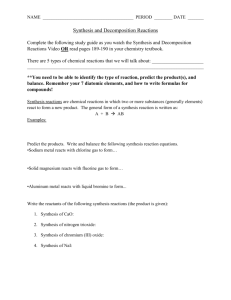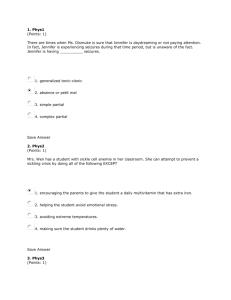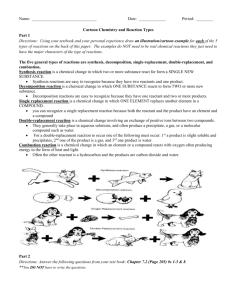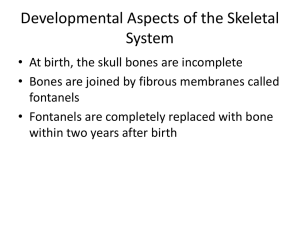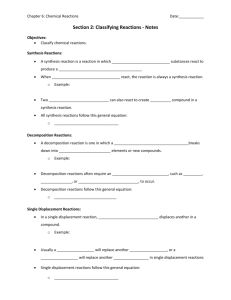32-Synthesis and Decomposition Worksheet-Answers
advertisement
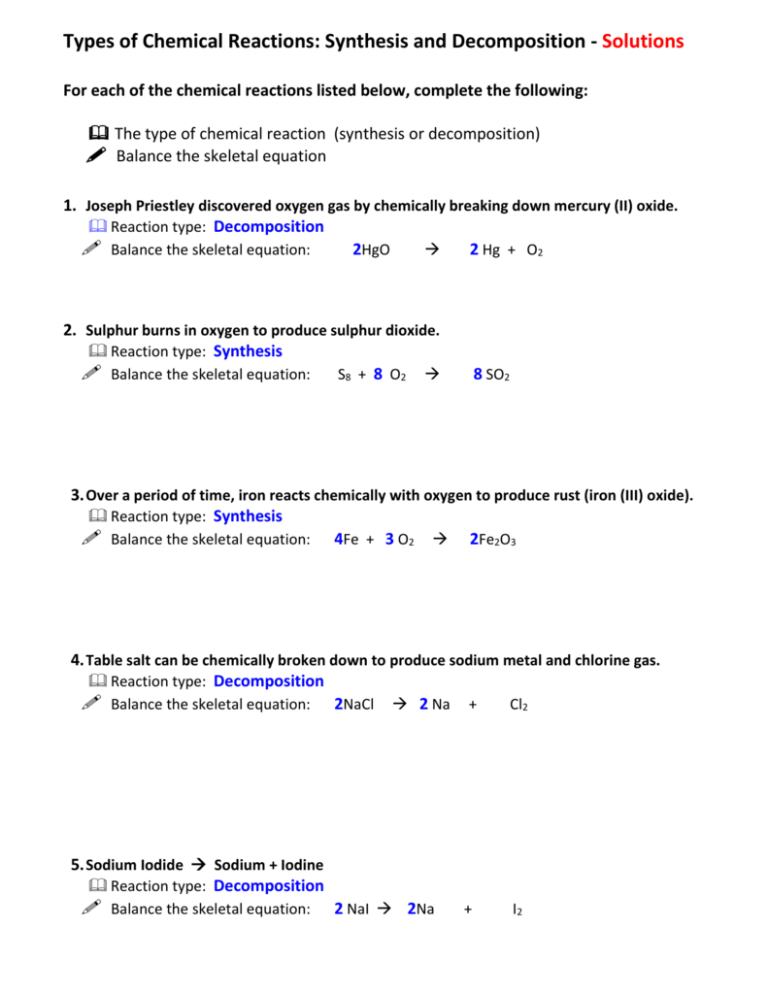
Types of Chemical Reactions: Synthesis and Decomposition - Solutions For each of the chemical reactions listed below, complete the following: The type of chemical reaction (synthesis or decomposition) Balance the skeletal equation 1. Joseph Priestley discovered oxygen gas by chemically breaking down mercury (II) oxide. Reaction type: Decomposition Balance the skeletal equation: 2HgO 2 Hg + O2 2. Sulphur burns in oxygen to produce sulphur dioxide. Reaction type: Synthesis Balance the skeletal equation: S8 + 8 O2 8 SO2 3. Over a period of time, iron reacts chemically with oxygen to produce rust (iron (III) oxide). Reaction type: Synthesis Balance the skeletal equation: 4Fe + 3 O2 2Fe2O3 4. Table salt can be chemically broken down to produce sodium metal and chlorine gas. Reaction type: Decomposition Balance the skeletal equation: 2NaCl 2 Na + Cl2 5. Sodium Iodide Sodium + Iodine Reaction type: Decomposition Balance the skeletal equation: 2 NaI 2Na + I2 6. Copper ore is broken down to remove the copper metal. Reaction type: Decomposition Balance the skeletal equation: 2 CuO 2 Cu + O2 7. Barbecue charcoal undergoes incomplete combustion to produce carbon monoxide. Reaction type: Synthesis Balance the skeletal equation: 2 C + O2 2 CO 8. Molten lye sodium metal + oxygen gas + hydrogen gas Reaction type: Decomposition Balance the skeletal equation: 2 NaOH 2 Na + O2 + H2 9. Freshly cut lithium reacts with nitrogen from the air. Reaction type: Synthesis Balance the skeletal equation: 6 Li + N2 2 Li3N 10.When magnesium metal is burned it reacts with oxygen to produce a bright light and new substance that is magnesium oxide. Reaction type: Synthesis Write and balance the skeletal equation: 2Mg + O2 2 MgO
